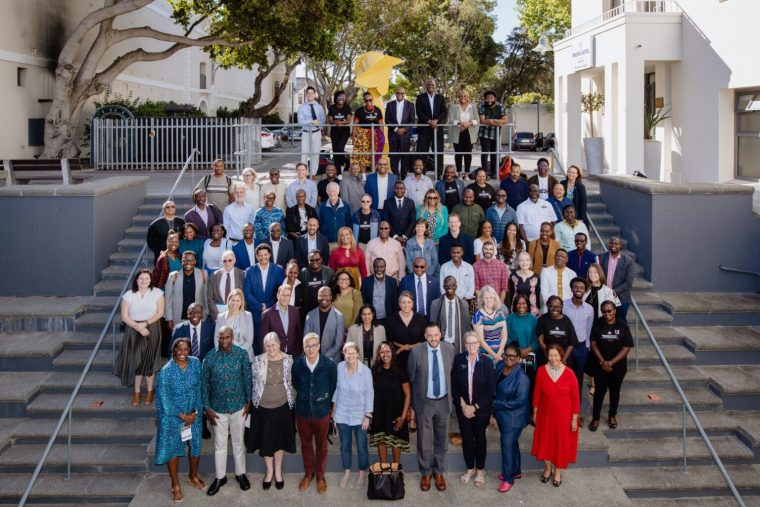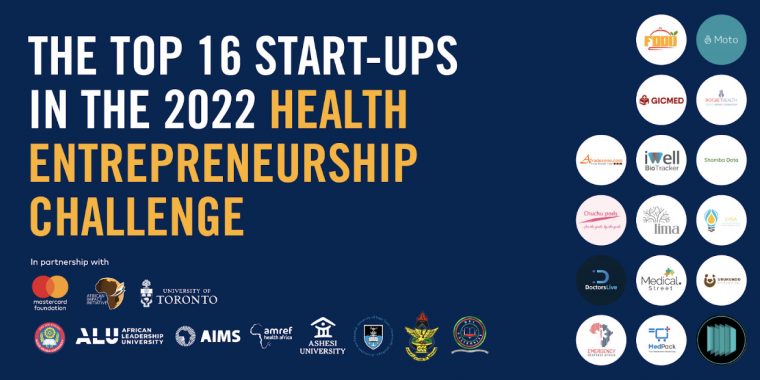Sixteen innovative healthcare start-ups have won their place in the African Impact Initiative’s Health Entrepreneurship Challenge 2022: a first-of-its kind program that seeks to advance early-stage entrepreneurs in Africa.
This pilot initiative of the African Impact Challenge (AIC), in partnership with the Mastercard Foundation, is supported in collaboration with three University of Toronto accelerators—”The BRIDGE”, Health Innovation Hub (H2i), and ICUBE—as well as programming support from expert African investors, founders and mentors. Ashesi University and the African Leadership University are also playing a key role on the continent as institutional partners. Modeled from experiences with African-based accelerators that The BRIDGE and AIC supported in 2020-21, the program attracted more than 227 startup applications from over 500 founders, including early-stage entrepreneurs at collaborating network institutions in 20 African countries.
Among 148 teams engaged in pre-incubation training, the top 30 were determined by a selection committee composed of representatives from each partner. Sixteen start-ups comprising 42 founders came out as winners, each receiving stage-based venture funding (up to $25,000 CAD per team), plus an additional $20,000 CAD per team to cover the cost of travel and accommodation. Of the winning start-ups, which are based in eight different African countries, 80 per cent include female founders. All teams are currently engaged in an incubation phase that offers comprehensive entrepreneurship training, coaching, and mentorship. Then in 2023, teams will have the opportunity to spend three months in Toronto expanding their entrepreneurship network.
The program’s incubation phase culminates with a Hybrid Investor Pitch Day on Friday, December 2, 2022 at 9:00am (ET). Attendees and investors will help provide feedback and vote for winners of additional grant funding ($30,000 CAD) for deserving teams. Please register here to join the event either virtually or in person.
THE TOP 16 START-UPS
Atradezone – Rwanda: Leveraging blockchain technology with Artificial Intelligence (AI) capabilities that help health manufacturers produce on demand, create distribution channels, advance digital marketing, manage their sales, and accept online payments while promoting cross-border trade.
ChuChu pads – Ghana: Specializing in producing and distributing reusable sanitary pads that are inexpensive, widely available, and environmentally beneficial.
DoctorsLive – Kenya: Providing personalized and on-demand digital mental health care targeted to individuals’ specific needs.
Emergency Response Africa – Nigeria: Building the largest network of first responders, emergency vehicles, and hospitals that can connect anyone experiencing a medical emergency to get help in minutes.
Food Bundles – Rwanda: Building a digital solution to optimize the distribution of fresh organic produce at affordable prices by linking smallholder farmers to consumers in cities.
GIC Space – Cameroon: Designing, developing, and promoting cost-effective and cutting-edge medical technology solutions, adapted to the African context, to address health challenges in Sub-Saharan Africa.
iWell Bio Tracker – Uganda: Developing a wearable watch that accurately measure body vitals (including partial saturation of oxygen, temperature, physical activity, pulse rate, and blood pressure) in real time with the remote monitoring of a physician.
Lima Technologies – Rwanda: Building an integrated software system that links smallholder farmers with their target markets.
Medical Street International Co. Ltd – Uganda: Building a digital-based marketplace and procurement platform that enables healthcare providers to find and deliver medical supplies to their workstations across Uganda.
MedPack – Tanzania: Digitizing pharmacy services, delivering medication and other pharmaceutical items, and educating the public on the proper use of medicine.
Moto – Mauritius: Building a life-saving transportation option incorporating an ambulance-backed model into available and existing taxi services.
Rocket Health – Uganda: Leveraging telemedicine and an end-to-end digitally supported platform for prevention, diagnosis, care, and treatment for patients with chronic illnesses.
Shamba Data – Rwanda: Providing live data that helps companies to understand food security and availability, market integration, as well as import and export information in the African context.
Syna Consultancy – Kenya: Providing equitable and inclusive sanitation solutions by paying special attention to the needs of persons with mobility challenges.
Urukundo Initiative – Rwanda: Redefining comprehensive sexuality education and life skills education in Africa through an innovative award-winning product: Urukundo Life Skills Board Game, available both physically and digitally.
Vectorgram – Kenya/Mauritius: Building health-tech infrastructure products targeted at large-scale digitization of the healthcare process in Kenyan hospitals to increase the scale of reach, solution efficiency, and cost-effectiveness of service provision.
We would like to extend our sincere gratitude to our institutional partners in Africa and for their significant contributions to the African Impact Initiative’s Health Entrepreneurship Challenge 2022, and their continued support of future programs:
- Addis Ababa University
- African Institute for Mathematical Sciences (AIMS)
- African Leadership University
- Amref International University/Amref Health Africa
- Ashesi University
- Kwame Nkrumah University of Science and Technology
- Moi University
- University of Cape Town
* The University of Toronto, Mastercard Foundation, and the African Higher Education Health Collaborative aims to develop Africa’s next generation of leaders and entrepreneurs!
More News & Events
Skip scroller content
Building Inclusive Health Systems for People in Contact with the Criminal Justice System in Africa
Join this webinar to explore how Africa can build inclusive health systems that protect the dignity, safety, and well‑being of people who come into contact with the criminal justice system.
Dignity, Data, and Disruption in Africa’s Health Systems: A Young Leader’s Reflection
John Nyagaka, a Mastercard Foundation Scholar and AHC Young Leaders Table Chair, reflects on his transformative experience at the 2025 Annual Convening.
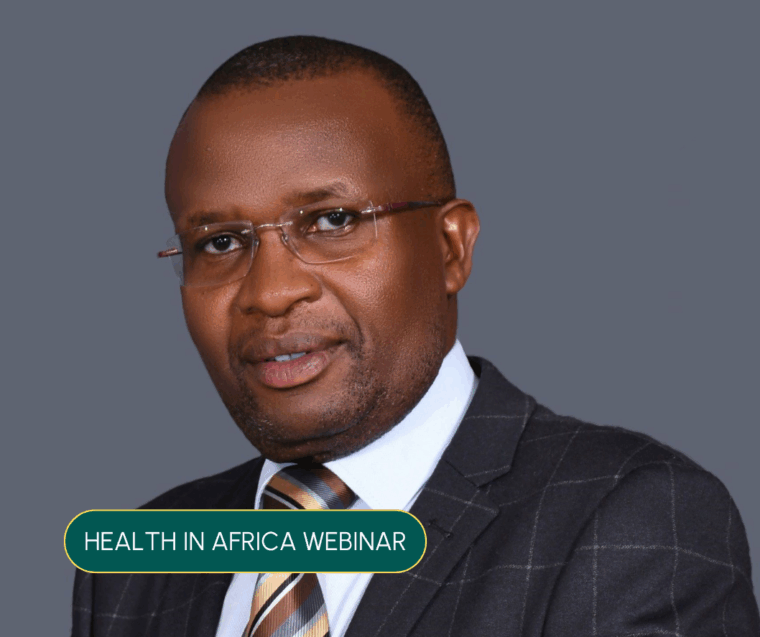
What Works: Improving Maternal and Newborn Health in Kenya and Ethiopia
Join this webinar to explore how community-led systems and digital innovations, in partnership with local leaders, are scaling sustainable healthcare impact and delivering life-saving care for mothers and their newborns.

Apply for the AIMS Master’s in Mathematical Epidemiology (MathEpi) Scholarship
Apply for the 2025 AIMS MathEpi Master’s program. Fully funded scholarships for African students in statistics and public health. Deadline: March 15.

Apply for KNUST’s CPD-Eligible Short Courses in Health Systems and Services Management
Applicants must meet the following requirements to qualify for the scholarship: Short Courses and Timelines 23rd – 27th February 2026: Emergency Preparedness and Response to Epidemic/Pandemic-Prone Diseases 10th – 14th February 2026: Community Emergency Care 24th – 27th February 2026: Palliative Care Module 1 23rd – 27th March 2026: Introduction to Healthcare Quality Improvement (IQI) […]
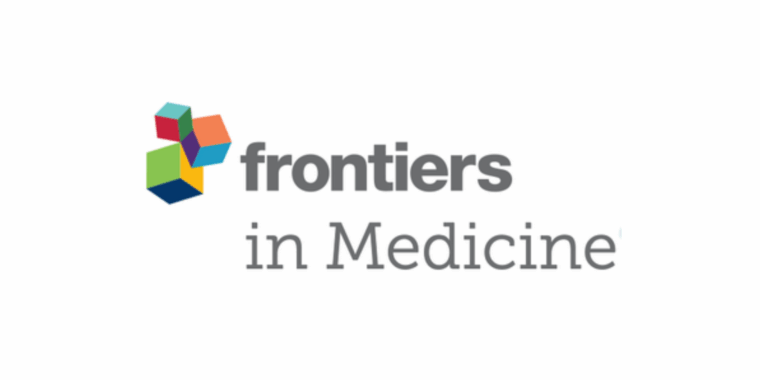
Call for Insights & Stories: Frontiers Opens Special Collection for AHC Partners
The Africa Health Collaborative (AHC) is pleased to share an exciting opportunity for all AHC institutional partners to share original research, reviews, case studies, policy briefs, perspectives, and reflective pieces in a new article collection titled “United in Partnership: Academic Collaborations for Primary Health Care Transformation” by Frontiers in Medicine. This special collection is being […]

A New Chapter of Collaboration: AHC Welcomes Prof. Joachim Osur as Executive Steering Committee Chair
The Africa Health Collaborative (AHC) has announced Prof. Joachim Osur, Vice Chancellor of Amref International University, as the new Chair of the Executive Steering Committee (ESC). The symbolic handover took place during the closing ceremony of the 2025 AHC Convening in Rwanda, held in October 2025. This marks a significant leadership transition from Prof. Nhlanhla […]
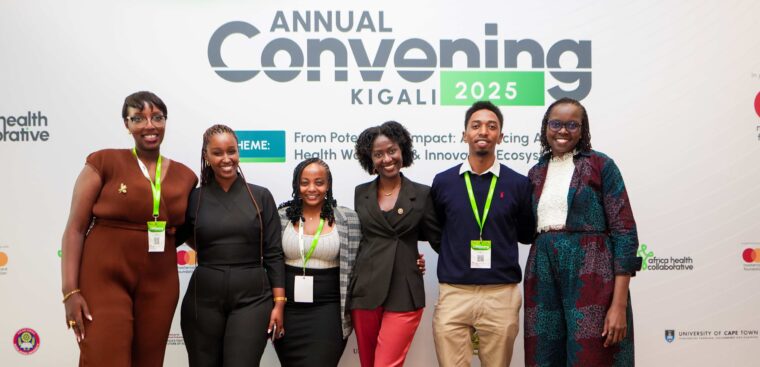
Africa Health Collaborative 2025: Driving Transformative Change in Primary Healthcare Future
Last October, over 170 policymakers, health experts, academics, and youth innovators from 14 countries came together for the Africa Health Collaborative’s (AHC) 2025 Annual Convening, hosted by the African Leadership University (ALU) in Kigali, Rwanda.

Engineering Dignity: Designing Low-Cost Prosthetics in the University of Cape Town’s MedTech Lab
Read about how Jemila Abdulai’s internship at UCT’s MedTech Lab strengthened her commitment to human-centered engineering, demonstrating how affordable innovations like the ADL Arm can expand access, restore dignity, and transform lives in underserved communities.

Graduate Scholarship Opportunities at the Kwame Nkrumah University of Science and Technology
Apply for graduate (MPh, MSc, MPhil, PhD) scholarships at the Kwame Nkrumah University of Science and Technology.
